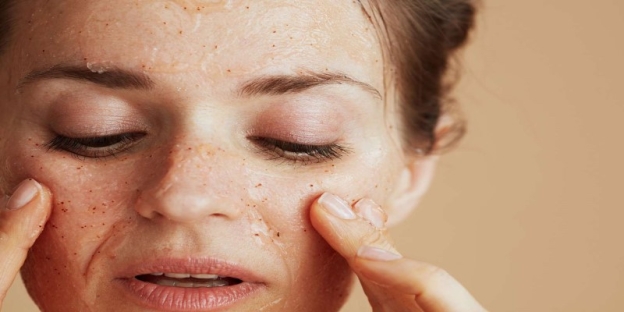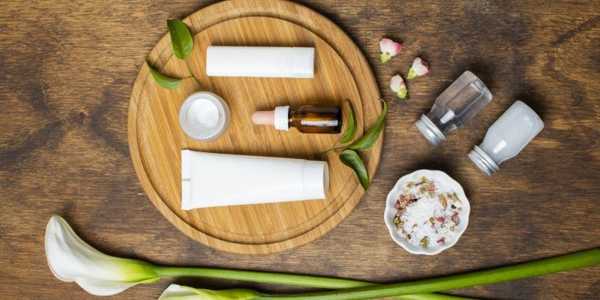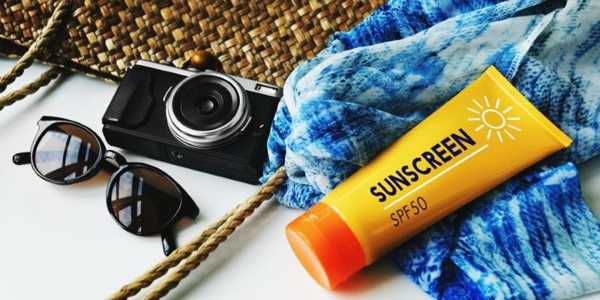Worried About Ruining Your Skin Barrier While Exfoliating? Try This Instead
It's a common skincare step that promises glowing, smooth skin, but without the right approach, exfoliation can leave your face irritated, dry, or even damaged. So, how do you get the benefits without hurting your skin barrier? Let's explore how to exfoliate effectively without disrupting the delicate balance of your skin.
What Is Your Skin Barrier, And Why Does It Matter So Much?
The skin barrier is the outermost layer of your skin. It works like a shield, protecting you from pollution, bacteria, UV rays, and moisture loss. When your skin is healthy, it feels soft and looks even. When it's damaged, it becomes sensitive, red, dry, or flaky.

Exfoliating removes dead skin cells from the surface, but if done too often or with the wrong products, it strips away more than just dead cells. That’s where the risk comes in. A healthy skin barrier isn’t just about how your skin looks—it’s your body's first defense line. So, keeping it intact should be the top priority, especially when exfoliating.
How Do You Know If You're Over-Exfoliating?
Sometimes it's easy to tell: stinging, redness, dry patches, or an overall tight feeling. However, at other times, your skin may seem fine immediately after exfoliating, only to start reacting slowly days later. This is a sign that the damage has begun under the surface.
If you're applying your usual moisturizer and your skin still feels uncomfortable or overly sensitive to other products, that could be a red flag. Peeling that doesn’t stop, shiny skin with no glow, or breakouts that won’t go away could also be signs.
You don’t need to wait until you see damage to reassess your routine. Being aware of these early signs can help you prevent long-term issues.
Should You Choose Chemical Or Physical Exfoliants?
The answer depends on your skin type, but in general, chemical exfoliants are gentler and more controlled than physical ones.
Chemical Exfoliants
These include alpha-hydroxy acids (like glycolic and lactic acid) and beta-hydroxy acids (like salicylic acid). They work by loosening the bonds between dead skin cells, allowing them to shed naturally. When used correctly, they're less likely to create tiny tears or over-strip the skin.
Physical Exfoliants
These include scrubs with beads or natural grains, as well as tools like cleansing brushes. They can be effective, but they're easy to overdo, especially on sensitive or dry skin. Some scrubs have particles with rough edges that can cause scratches on the skin.
If you enjoy the sensation of physical exfoliation, look for gentle formulas with smooth, rounded particles. Use them less often, and avoid them altogether if your skin is sensitive or prone to breakouts.
How Often Should You Exfoliate?
More isn't always better. For most skin types, applying once to three times per week is sufficient. The correct frequency depends on several factors:
Dry Or Sensitive Skin
Once a week is usually plenty.
Oily Or Acne-Prone Skin
Two or three times per week may help keep pores clear, but watch closely for any signs of irritation.
Combination Skin
Start once a week, then gradually increase the frequency based on how your skin responds.
If you're using other active ingredients, such as retinol or vitamin C, your skin may need extra time to adjust. In this case, reduce exfoliation until your skin becomes more tolerant of it.
How Can You Exfoliate Gently Without Causing Damage?
Here are some steps to make exfoliation effective but still gentle:

Start With Clean, Damp Skin
Always begin by cleansing your skin to remove dirt, oil, and makeup. Damp skin can help chemical exfoliants spread evenly without requiring a significant amount.
Use Products Made For Your Skin Type
Don't just pick what looks fancy or popular; instead, choose what suits you best. If you have sensitive skin, try lactic acid. If your skin is prone to acne, salicylic acid may be a better option. And if your skin is dry, avoid high-concentration acids or rough scrubs.
Follow With Moisturizer Right Away
After exfoliating, your skin is more absorbent. Applying a moisturizer immediately helps restore hydration and strengthen the skin barrier.
Avoid Harsh Ingredients After Exfoliation
Avoid pairing exfoliating with other potent ingredients, such as retinol, benzoyl peroxide, or vitamin C, unless your skin is already accustomed to them. Keep things simple and soothing post-exfoliation.
Use Sunscreen Daily
Exfoliated skin is more vulnerable to sun damage. Even if you only exfoliate at night, wearing sunscreen during the day is non-negotiable. A damaged barrier can take weeks to repair, and the sun significantly slows down that process.
What Ingredients Help Repair The Skin Barrier?
If you’ve exfoliated too often or notice signs of a damaged barrier, these ingredients can help get things back on track:
Ceramides
These are lipids that strengthen the skin’s outer layer.
Niacinamide
This is a calming ingredient that helps rebuild barrier function and reduces redness.
Panthenol (Vitamin B5)
Known for its soothing and hydrating properties.
Hyaluronic Acid
Helps the skin retain moisture and gives a plumper look.
Centella Asiatica (Cica)
This plant-based ingredient supports wound healing and helps alleviate irritation.
Using products with these ingredients between exfoliation sessions helps support healthy recovery and reduces the risk of long-term damage.
Choosing Smarter, Not Just More Products
It's tempting to reach for the most potent formula or follow the latest trend, but your skin doesn't care about hype—it just wants to stay healthy. You don't need a dozen steps. Often, just pairing a gentle exfoliant with a good moisturizer and sunscreen is enough to keep your skin smooth, clear, and protected.
Exfoliating without damage isn't about altogether avoiding exfoliants. It's about choosing the right ones, using them at the right time, and knowing when your skin needs rest. When done right, exfoliation can be one of the most rewarding parts of your skincare routine.





